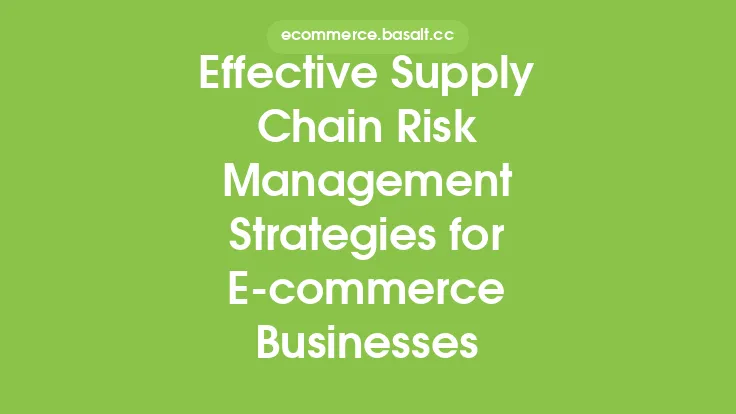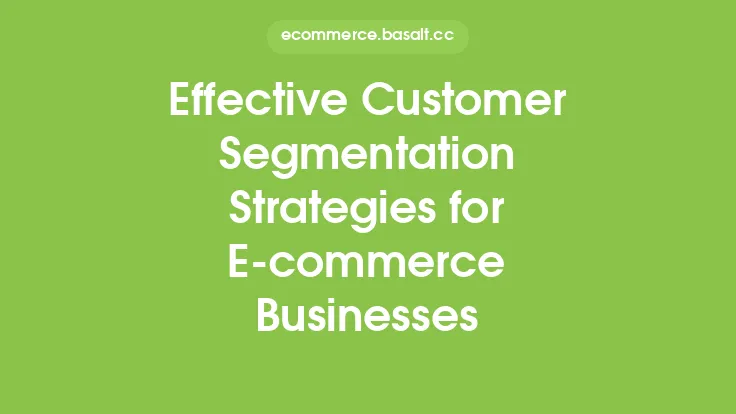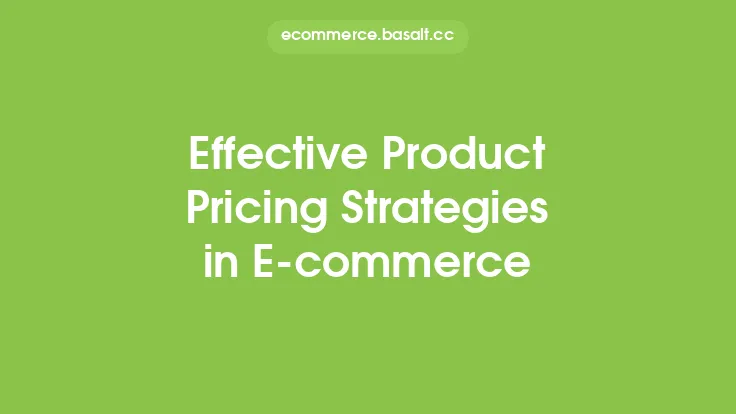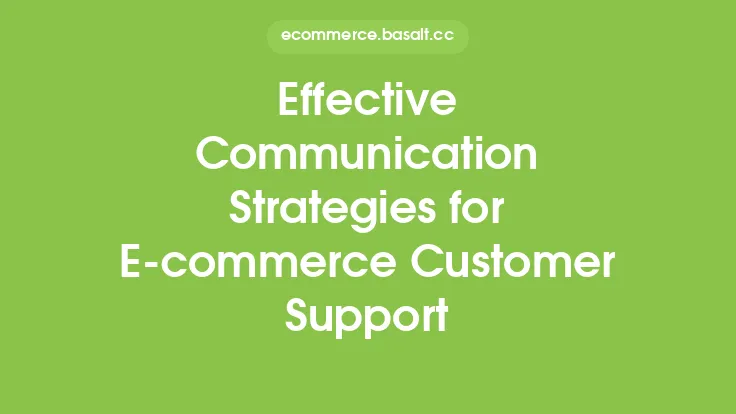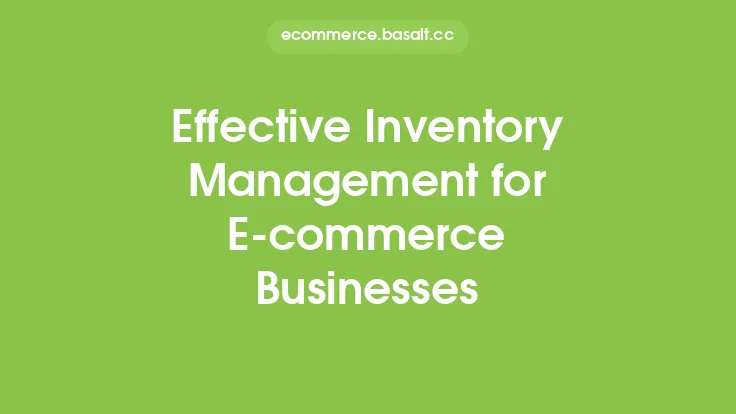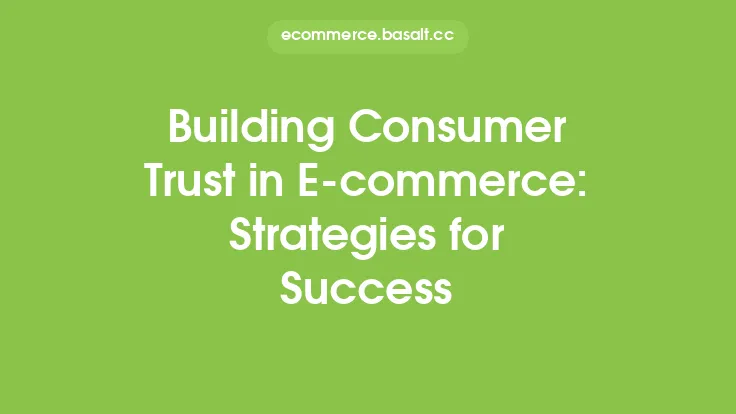In the world of e-commerce, product sourcing is a crucial aspect of running a successful online business. It involves finding and acquiring the products you want to sell on your platform, and it can be a complex and time-consuming process. Effective product sourcing strategies are essential for e-commerce businesses to stay competitive, increase profit margins, and provide customers with high-quality products. In this article, we will explore the different product sourcing strategies that e-commerce businesses can use to achieve success.
Understanding Product Sourcing
Product sourcing involves finding and acquiring products from suppliers, manufacturers, or other sources. It requires a deep understanding of the market, the products, and the suppliers. E-commerce businesses need to consider factors such as product quality, pricing, shipping, and lead times when sourcing products. They also need to ensure that the products they source comply with relevant laws and regulations, such as product safety and intellectual property laws.
Types of Product Sourcing
There are several types of product sourcing strategies that e-commerce businesses can use. These include:
- Direct sourcing: This involves sourcing products directly from manufacturers or suppliers. It can be a cost-effective option, but it requires a significant amount of time and effort to find and negotiate with suppliers.
- Indirect sourcing: This involves sourcing products through intermediaries, such as wholesalers or distributors. It can be a convenient option, but it may increase costs and reduce profit margins.
- Dropshipping: This involves sourcing products from suppliers who ship products directly to customers. It can be a low-risk option, but it requires careful management of inventory and shipping.
- Private labeling: This involves sourcing products from manufacturers and labeling them with the e-commerce business's brand. It can be a profitable option, but it requires a significant investment in branding and marketing.
Product Sourcing Channels
E-commerce businesses can use various channels to source products. These include:
- Trade shows and exhibitions: These events provide opportunities for e-commerce businesses to meet suppliers and manufacturers in person.
- Online directories: These directories, such as Alibaba and Thomasnet, provide lists of suppliers and manufacturers from around the world.
- Social media: Social media platforms, such as LinkedIn and Facebook, can be used to connect with suppliers and manufacturers.
- Referrals: Referrals from other e-commerce businesses or industry experts can be a reliable way to find suppliers and manufacturers.
Evaluating Suppliers
E-commerce businesses need to evaluate suppliers carefully to ensure that they are reliable and provide high-quality products. Factors to consider when evaluating suppliers include:
- Product quality: The supplier's products should meet the e-commerce business's quality standards.
- Pricing: The supplier's prices should be competitive and profitable for the e-commerce business.
- Shipping: The supplier's shipping times and costs should be reasonable and reliable.
- Communication: The supplier should have good communication skills and be responsive to the e-commerce business's needs.
- Reputation: The supplier's reputation should be good, with a track record of providing high-quality products and services.
Negotiating with Suppliers
Negotiating with suppliers is an essential part of product sourcing. E-commerce businesses need to negotiate prices, payment terms, and shipping arrangements with suppliers. Factors to consider when negotiating with suppliers include:
- Market prices: The e-commerce business should research market prices to determine a fair price for the products.
- Volume discounts: The e-commerce business may be able to negotiate volume discounts if it orders large quantities of products.
- Payment terms: The e-commerce business should negotiate payment terms that are favorable, such as payment upon delivery or a discount for early payment.
- Shipping arrangements: The e-commerce business should negotiate shipping arrangements that are reliable and cost-effective.
Managing Product Sourcing
Effective product sourcing requires careful management. E-commerce businesses need to manage their relationships with suppliers, track inventory levels, and monitor product quality. They also need to stay up-to-date with changes in the market and adjust their product sourcing strategies accordingly. Factors to consider when managing product sourcing include:
- Supplier relationships: The e-commerce business should build strong relationships with suppliers to ensure that they provide high-quality products and services.
- Inventory management: The e-commerce business should track inventory levels carefully to avoid overstocking or understocking products.
- Product quality control: The e-commerce business should monitor product quality carefully to ensure that it meets its standards.
- Market trends: The e-commerce business should stay up-to-date with changes in the market and adjust its product sourcing strategies accordingly.
Conclusion
Effective product sourcing strategies are essential for e-commerce businesses to stay competitive, increase profit margins, and provide customers with high-quality products. By understanding the different types of product sourcing, using various product sourcing channels, evaluating suppliers carefully, negotiating with suppliers, and managing product sourcing effectively, e-commerce businesses can achieve success in the world of e-commerce. Whether you are a new e-commerce business or an established one, effective product sourcing strategies can help you to grow and thrive in a competitive market.
